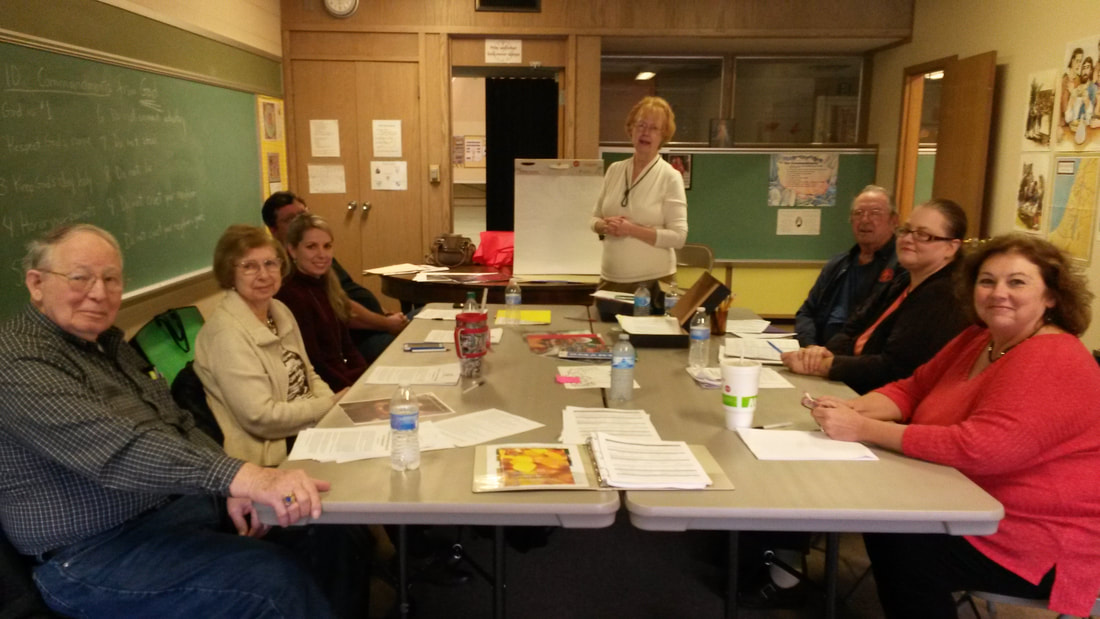|
According to The Strange Political Silence On Elder Care, the problem is our society has an extraordinary number of caregivers who haven’t formed a group to push for change. Unlike other groups, such as Mothers Against Drunk Driving (MADD), caregivers should have formed a constituency to insist on changes which better support them; but they haven’t. Why not? One surprising finding is that caregivers don’t recognize themselves! How can our society offer support to a person who denies needing help? How can we help if they believe they can’t ask? What is the effect of this lack of coalescing, lack of self-identification and the resulting failure to prepare and plan?
This article describes the possible reasons:
Senior Sidekicks has stood with caregivers for the past 12 years! The caregiving phase is the newest part of life’s journey. A little over 100 years ago, people didn’t live long enough to reach this stage. Our firm has struggled to get new caregivers and those in the midst of caregiving to accept help. Perhaps this article explains why people, who are otherwise prudent, take such a strange view of caregiving. Let’s compare and contrast caregiving attitudes with attitudes to other parts of life’s journey: Your getting married, do you make plans? What kind of a wedding would you have if you didn’t acknowledge you were engaged? How would you bring your lives together in marriage: legal, financial, religious, integrating your families, where to live, and children? My parents, like many during WWII, had a hurry-up wedding. They were high school sweethearts, and engaged in college. When my father finished his course work and ROTC, he was shipped to Texas. The university mailed his diploma. My mother took the train to Texas and they were married by a preacher on base. They had 3 weeks of wedded bliss before he shipped out for 3 years! Mother went home to a fire storm! Both sets of parents were in shock. Mother had not completed her college education; could she go back and finish? Would the all-girls school take her back as a married woman? Neither of my parents had completed paperwork naming her his spouse? Forms and letters took a long time to reach soldiers in the field and even longer to receive replies. Who would be the listed next-of-kin in the event he didn’t come home? She even had to discuss possible burial arrangements!! Who was now responsible to pay for her education? Was she to receive his pay since she was his spouse? Mother described it as a very trying time that she had to face alone because they didn’t plan. Weddings are as much a family matter as caregiving. A wedding, without planning, causes major stress. Caregiving, without planning and support also causes major stress. Yet, families will tell me they’ll handle it all by themselves: really? Let’s look at another example: You’re having a baby! Does that mean you don’t need any help? If you’re expecting do you still need proper medical care, resolve legal matters, insurance, or a larger place to live? We expect that expectant parents need help. We’ve developed the social systems to provide it. Having children brings many resources into the family. There are Family Medical Leave Act (FMLA) for both parents in certain situations. There are prepared childbirth classes, visiting nurses to the home after delivery and new mother’s groups. Relatives come to help the new mother and baby. Everybody sends food! It’s acceptable to have help for babies, why not for caregivers? The difference is we’ve had babies for millennia; caregivers, less than 100 years. Thus, the family caregiver may or may not receive some defacto help from her church, neighbors, or friends. There’s no visiting nurse system. The caregiver can take FMLA but it’s complicated and doesn’t always cover the type of caregiving the employee needs to give the elder. Many FMLAs don’t pay the employee. Caregiving may mean moving the elder closer to the caregiver, or moving in with the elder. Caregiving may be so demanding that it afflicts the caregiver’s health. The caregiver may be forced to quit the job. A break in the caregiver’s career creates a major financial setback as the caregiver tries to re-enter the workforce. Caregivers often draw on their retirement savings during caregiving. Other developed countries have seen this writing on the wall and started putting plans in place. Why can’t the US do that? We can, if we act now. You can do two things:
Talk to your neighbors. Ask what your church is doing for caregivers? Ask your employer the same thing. FMLA, by itself, is not an adequate response.) Are you a member of a union; put caregiver support on the bargaining table. We already have mandatory courses in sexual harassment and discrimination. Make caregiving training the next mandatory course. Are you an employer? If you prepare for tornadoes; prepare for this gray tsunami. By 2030, 1 in 5 Americans will be over age 60 ENTER THE POLITICAL DEBATE ON THE SIDE OF CAREGIVERS: It’s time to insist that the political conversation of this campaign is about p-r-e-p-a-r-i-n-g for this gray tsunami! It touches everyone. It’s not red or blue, it’s GRAY. Candidates will ask for your vote; tell them to put caregiving in their platform to get your vote! Caregiving is at least as important as any other policy
0 Comments
There it is: the street where you grew up and the house coming into view. All your memories flood back as you park the car and unload the bags. When you come inside, things aren’t the same. No decorations and no special smells or music greet you. Your parent is delighted to see you but that is as far as it goes.
Holidays reveal the way things are now. It takes extra effort to put up decorations and bake special dishes. Your parent may no longer be capable of doing the extras. How does that scene might make you feel? It is hard to view your family home which is now unfamiliar in its lack of holiday efforts. Perhaps, in your heart of hearts, you had a feeling things would be different this year. Perhaps, you even felt some physical symptoms as you reached the old neighborhood. Perhaps you felt irritable during this trip. The intuitive parts of us “record” small bytes of information from contacts with our parents earlier in the year. These impressions were stored away because the other parts of our lives are so busy. These bytes of impressions don’t go away because we grew up with these parents. We know them in depths we cannot put in words. Your feelings are your intuition comparing the way things were with the current data and flashing a signal to prepare you: heed that signal. Once you understand that these vague physical symptoms are signals they lose their power. You are not getting sick, but you may feel sick at heart. Feeling a sense of loss is real, so are feeling sad or lonely. Realizing things have changed is also real. Here we are at your parents’ doorway; what do we do with our feelings? The doorway is not the place to deal. Let’s go through the process and look for times and ways to handle your feelings. We have all had some nerve-wracking event and we all know how we reacted then. We are the same people now. Your feelings will hit you, plan for it. Take a moment for yourself when you feel symptoms or irritation. Yes, take a moment for yourself. You will not be able to cope with this process if you do not take yourself into account. If you are alone put your pen down, or take your fingers off the keyboard. Feel your feelings. That might include shedding a few tears, let them flow. It will work better than at your parent’s doorway. Perhaps you do not shed tears, punch something safe to punch! Take a few deep breaths. Next; reach for your positive memory. Select one or two things that were special to you about the holidays at home. Was it music? You know where the records are stored and you can retrieve them. Was a particular dish? If you can’t bake it, there are people who can. Order it for pick up. That pick up trip could be an outing for you to share with the parent or a chance to give you a break during the visit. Perhaps it’s decorating you remember. Think about those items and prioritize. Don’t get everything out. Putting up a couple decorations is another activity you can share with your parent. Resolve yourself to the new situation. This will not be a holiday like the past. You can make it a celebration: which is our presence with each other. That’s the greatest present. Once upon a time there were two sisters. Mary built a cabin by the lake with her husband. They sold their house in town upon retirement. The other, Beth, also wanted a “cabin in the woods”. She and her husband planned to retire there as soon as their youngest child finished college.
Things did not turn out as planned. Mary developed lung cancer. She needed to be closer to medical care. Those winding lake roads were not plowed in the winter. She wrote that “The bugs never stop” at the lake. Her condition made it hard for her to keep up with such a house. Since the lake house was new, they had almost no equity yet, and they had to sell. They took a loss as they moved back to town. Beth had a different set of problems. Her husband developed some odd behaviors after he retired. She found it uncomfortable keeping house with him underfoot. She confessed to her daughter that she was considering a divorce! Thankfully, they had not built a cabin in the woods or they would have had no relief from each other. Her husband finally enrolled in a program and participated in local archeology projects. One day the Sherriff’s car drove into her driveway. He announced that her husband had died of a heart attack on one of these projects. Now, Beth was a widow with a child still in college! Thankfully, they had not started to build this cabin. How would she have managed to finish its construction and sale by herself? She didn’t want to live so far from town now that she was alone. What can we learn from these sisters?
|
Author "A Senior Moment" is written by Ms. Sara Lieber, owner of Senior Sidekicks. Ms. Lieber has over 30 years of experience in senior care. Archives
March 2024
Categories
All
|




 RSS Feed
RSS Feed